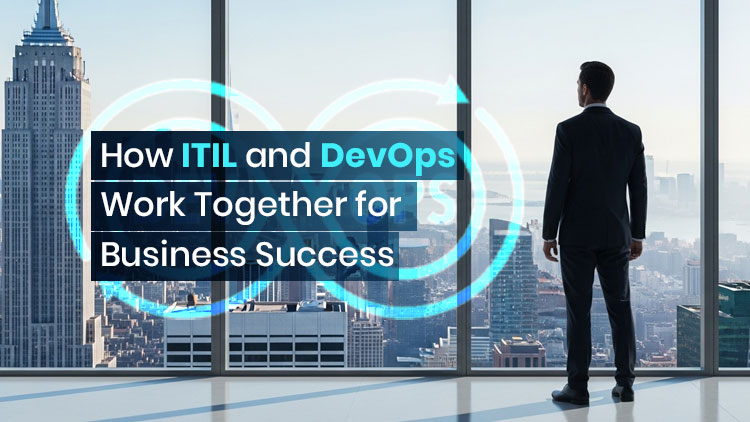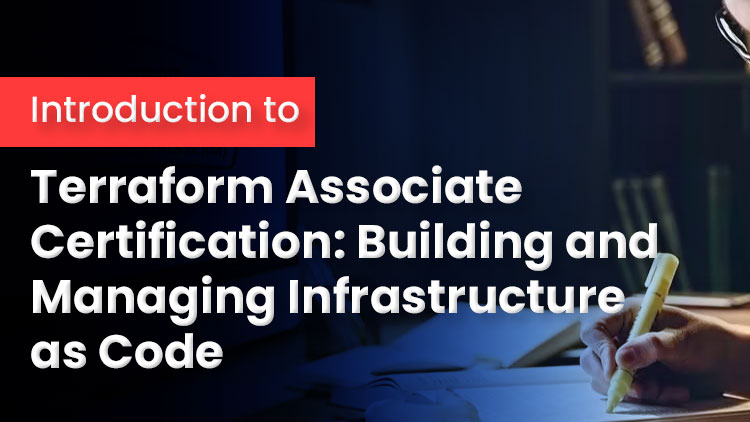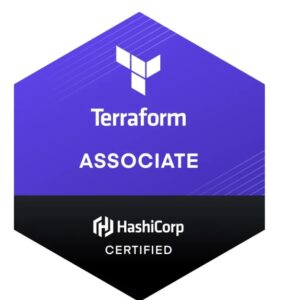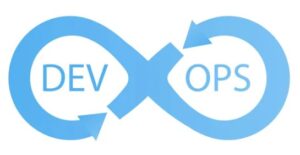
Introduction to Terraform Associate Certification Building and Managing Infrastructure as Code

Introduction
Ready to advance your career and become a key player in modern IT infrastructure management? The Terraform Associate certification is your gateway to mastering infrastructure as code and enhancing your professional value. Start by diving into hands-on practice, leveraging online resources, and engaging with the Terraform community. Don’t miss out on the opportunity to elevate your skills and open doors to higher earning potential and career advancement. Begin your journey today and secure your Terraform Associate certification to stay at the forefront of the evolving tech landscape. The Terraform Associate certification is a distinguished credential designed to validate expertise in using Terraform for managing infrastructure as code (IaC). This certification highlights a professional’s ability to effectively deploy, manage, and scale infrastructure resources using Terraform’s declarative configuration language, HCL (HashiCorp Configuration Language). Ideal for those involved in cloud and on-premises infrastructure management, the Terraform Associate certification establishes credibility in streamlining operations and supporting modern cloud-native architectures, making it a pivotal qualification for IT professionals looking to enhance their DevOps practices and infrastructure management capabilities.

If you’re keen on enhancing your expertise in Terraform and cloud-native architectures, we invite you to explore “Terraform Associate Certification Exam Cram: Essential Exam Success“ by VERSAtile Reads. Within the pages of this book, you’ll find invaluable insights that can guide your path to success in streamlining operations and supporting modern cloud environments.
Introduction to DevOps
DevOps is a set of practices, tools, and a cultural philosophy that automates and integrates the processes between software development and IT operations. Its main goal is to shorten the software development lifecycle and provide continuous delivery with high software quality. Here are the key aspects of DevOps:
- Collaboration and Communication: DevOps emphasizes the collaboration between developers and operations teams.
- Automation: Automating repetitive tasks, such as code testing, integration, and deployment, is a core principle of DevOps. This not only speeds up processes but also reduces the risk of human error.
- Continuous Integration and Continuous Delivery (CI/CD): CI/CD pipelines automate the process of integrating code changes and deploying them to production. This ensures that software can be released in small, manageable increments, making it easier to identify and fix issues quickly.
- Infrastructure as Code (IaC): IaC involves managing and provisioning computing infrastructure through machine-readable scripts rather than through physical hardware configuration or interactive configuration tools. This allows for more consistent and repeatable setups.
- Monitoring and Logging: Continuous monitoring and logging of applications and infrastructure help in identifying and resolving issues proactively. This ensures better reliability and performance of the applications.
- Agility and Flexibility: DevOps practices support agile methodologies, allowing organizations to respond to changes more quickly and efficiently. This adaptability is crucial in today’s fast-paced tech environment.
- Security: DevOps integrates security practices into the development process, often referred to as DevSecOps. This ensures that security is built into applications from the start rather than being an afterthought.

DevOps and Terraform are closely linked through Infrastructure as Code (IaC). Terraform enables DevOps teams to automate, manage, and version infrastructure consistently across environments. It integrates with CI/CD pipelines for seamless deployment, supports collaboration through version control, and scales easily across multi-cloud environments, making it a key tool for modern DevOps practices.
Understanding Terraform Associate Certification
The Terraform Associate certification is a credential that verifies proficiency in utilizing Terraform for managing infrastructure as code (IaC) across diverse cloud and on-premises environments. This certification validates an individual’s ability to effectively deploy, manage, and update infrastructure resources using Terraform’s declarative configuration language, HCL (HashiCorp Configuration Language). Holders of this certification demonstrate competence in defining infrastructure requirements, automating resource provisioning, and ensuring infrastructure consistency and scalability. By earning the Terraform Associate certification, professionals establish their credibility in leveraging Terraform to streamline operations, adopt DevOps practices, and support modern cloud-native architectures.
Core Areas Covered in the Terraform Associate Certification
-
Terraform Basics
-
- Introduction to Terraform: Understanding the purpose and benefits of Terraform.
-
- Configuration Language: Using HashiCorp Configuration Language (HCL) to define infrastructure.
-
Managing Terraform State
-
- State Files: Managing and understanding Terraform’s state files to track infrastructure changes.
-
- Remote State Storage: Configuring remote state storage for team collaboration and consistency.
-
Building and Managing Infrastructure
-
- Resource Provisioning: Writing and applying configuration files to provision cloud resources.
-
- Modules: Creating and using Terraform modules to encapsulate and reuse infrastructure components.
-
Version Control and Collaboration
-
- Versioning: Managing versions of Terraform configurations to maintain consistency and track changes.
-
- Collaboration: Using version control systems like Git to collaborate on infrastructure code.
-
Best Practices and Security
-
- Best Practices: Applying Terraform best practices for reliable and secure infrastructure deployments.
-
- Security Considerations: Managing sensitive data and securing Terraform configurations.
Roles and Responsibilities of Terraform Certified Associate
- Design and plan infrastructure using Terraform to meet project requirements.
- Implement Terraform configurations to provision and manage cloud resources effectively.
- Apply Terraform best practices to ensure reliable and secure infrastructure deployments.
- Collaborate with teams to align infrastructure provisioning with development goals.
- Manage version control and Terraform state to maintain infrastructure consistency.
- Develop reusable Terraform modules for efficient infrastructure provisioning.
- Automate infrastructure deployment and configuration using Terraform scripts and CI/CD pipelines.
- Troubleshoot and debug Terraform configurations and infrastructure issues effectively.
- Continuously evaluate and enhance infrastructure design for improved performance.
- Stay updated with the latest Terraform features and best practices for effective infrastructure management.
The Influence of Terraform Certification on Salary
As of August 1, 2024, with an average annual pay of $100,673 for Terraform professionals, certification can help individuals position themselves within the higher end of the salary spectrum.
- Increased Earning Potential: Certified professionals are likely to command higher salaries, aligning with the higher end of the salary range ($125,000 to $179,500). Certification validates expertise and can lead to roles with greater responsibility and higher pay.
- Competitive Advantage: In a field where salaries vary widely, certification provides a competitive edge. It can help individuals secure positions that offer salaries above the median, potentially reaching up to $193,500 annually.
- Career Advancement: Certification can be a key factor in accessing advanced roles or promotions. It often correlates with higher positions within organizations, which typically come with increased compensation.
Key Areas of Focus
To achieve success in your exam preparation, employ these strategies:
- Prioritize hands-on practice to build a strong grasp of key concepts.
- Utilize Google and Stack Overflow for troubleshooting when faced with challenges.
- Take detailed notes during your study to reinforce retention.
- Develop 1-2 small projects with Terraform to gain practical experience.
- Share your learning progress publicly to interact with the community and gather valuable insights.
Prerequisites Of The Certifications
To pursue Terraform certifications, such as the HashiCorp Certified: Terraform Associate, candidates should ideally have a basic understanding of cloud computing and infrastructure concepts. Familiarity with Infrastructure as Code (IaC) principles and tools will be beneficial, although specific experience with Terraform is not required. Comfort with using command line interfaces is also important, as Terraform operates primarily through its CLI. While formal training is not mandatory, a foundational understanding of Terraform’s core concepts and functionalities is recommended to ensure effective preparation and engagement with the certification material.
Certification Expiry
The HashiCorp Certified: Terraform Associate certification does not have a fixed expiration date. However, HashiCorp recommends that certified individuals stay current with updates and new versions of Terraform. As Terraform and related technologies evolve, it’s a good practice to periodically review and refresh your knowledge. Staying updated with the latest features and best practices ensures that your skills remain relevant and effective in real-world scenarios.
Demand in 2024
The demand for Terraform skills is exceptionally high and continues to grow in 2024.
- Infrastructure as Code (IaC): Terraform is a leading tool for IaC, allowing organizations to manage and provision infrastructure resources efficiently and consistently. This has become a standard practice in modern IT operations.
- Cloud Adoption: With the rapid growth of cloud computing, the need for tools like Terraform to manage cloud resources is paramount.
- DevOps and CI/CD: Terraform integrates seamlessly with DevOps practices and CI/CD pipelines, making it a crucial tool for automating infrastructure provisioning and deployment.
- Multi-Cloud Environments: Terraform’s ability to manage resources across multiple cloud providers increases its value in complex IT environments.
Conclusion
The Terraform Associate certification is a valuable credential for IT professionals seeking to enhance their skills in managing infrastructure as code. By earning this certification, you validate your expertise in using Terraform to automate and manage infrastructure, positioning yourself for career growth and increased earning potential.
Whether you are new to Terraform or looking to formalize your knowledge, the Terraform Associate certification provides a solid foundation for mastering infrastructure management in the cloud era.
FAQs
-
What is the Terraform exam?
The Terraform exam, or HashiCorp Certified: Terraform Associate exam, tests your ability to use Terraform for managing infrastructure as code. It covers key areas such as writing and managing configuration files, provisioning resources, handling state files, and applying best practices. Passing this exam validates your skills in automating infrastructure deployment and management, making you proficient in using Terraform across various environments.
-
How do you prepare for the terraform exam?
To prepare for the terraform exam, create a study plan that covers all domains of the exam. You can visit www.versatileread.com to prepare using exam essentials.
-
Is prior experience with Terraform required to take the Terraform Associate certification exam?
No, prior experience with Terraform is not required, but it is highly beneficial. The Terraform Associate certification is designed for individuals with a basic understanding of infrastructure as code (IaC) and cloud computing concepts. Even if you are new to Terraform, you can prepare by studying the core concepts, practicing with Terraform configurations, and using online resources to build your knowledge.
- Published Date:



